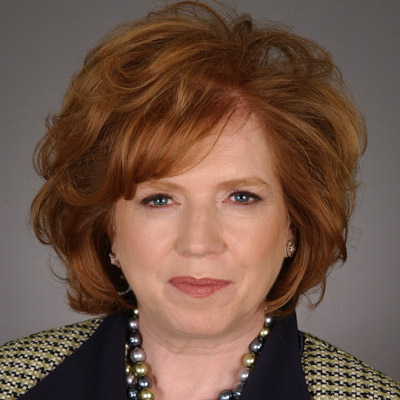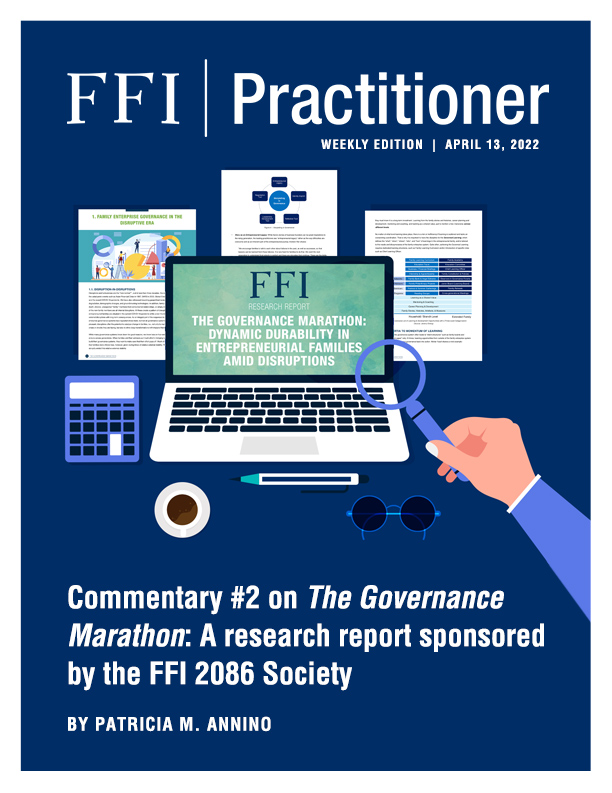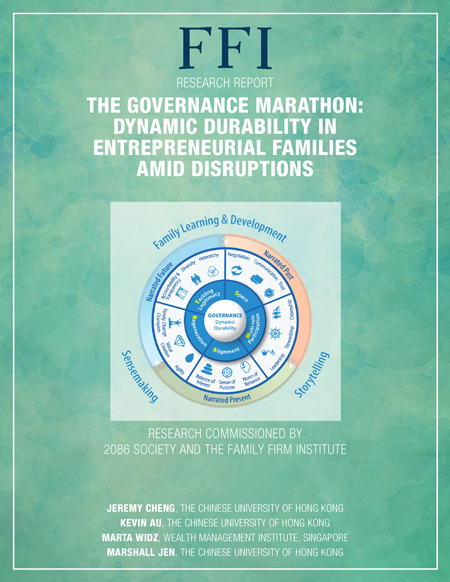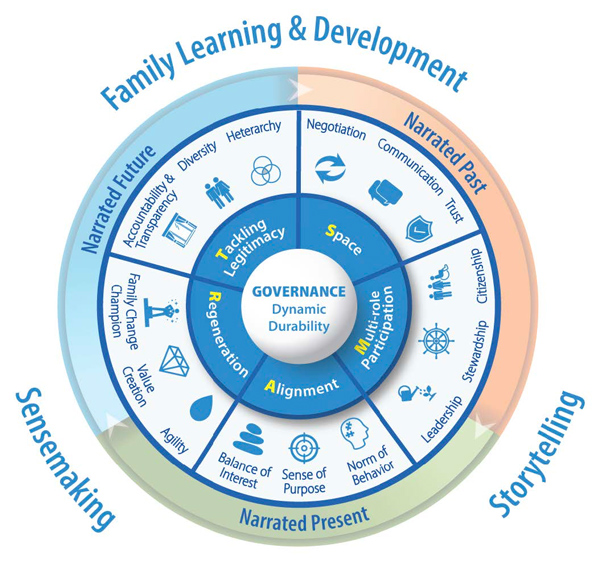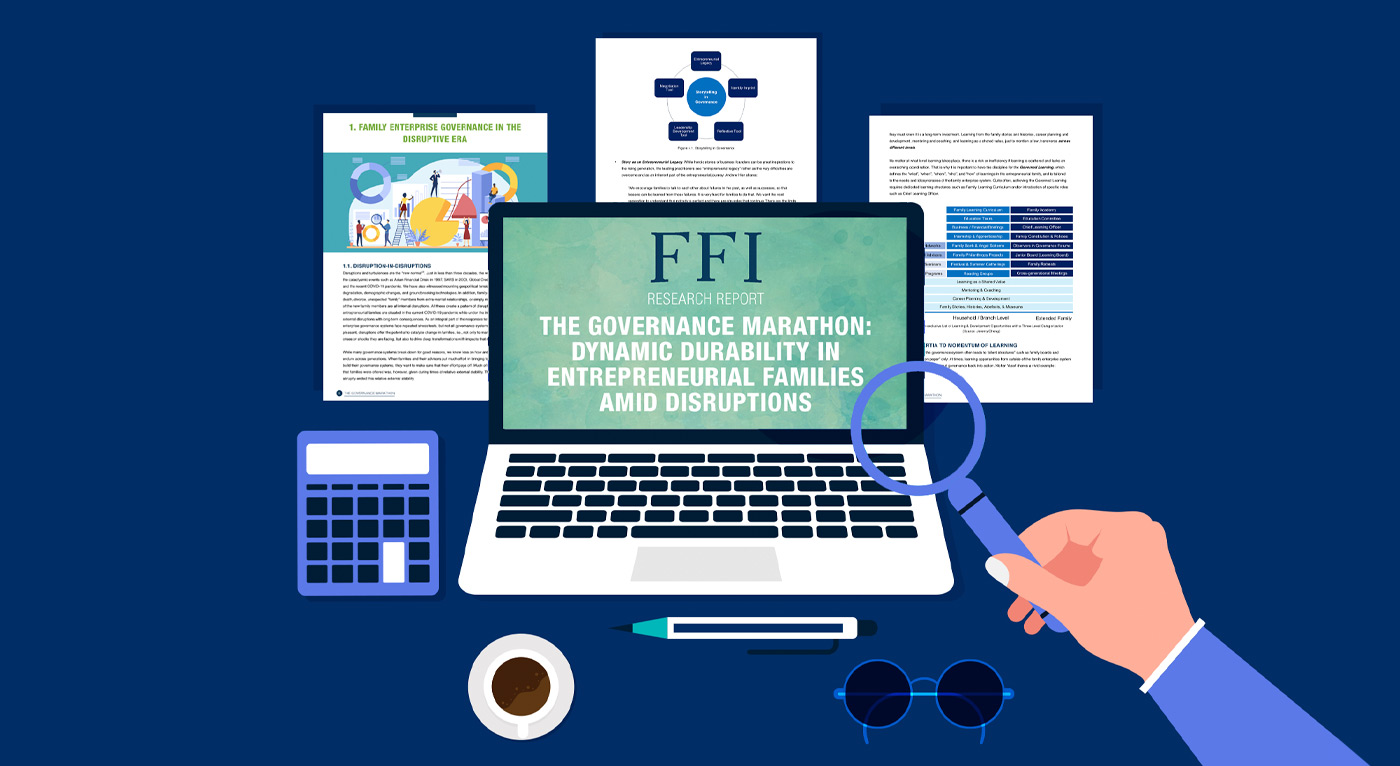
As a global community, we face complex, interconnected challenges, and today’s entrepreneurial families feel and face all these challenges as well. To survive, persist, and thrive, the entrepreneurial family must face these challenges head-on. The recent research report, sponsored by the FFI 2086 Society, The Governance Marathon: Dynamic durability in entrepreneurial families amid disruptions, addresses one of the complex issues that all entrepreneurial families face—steering the family through a pattern of “disruption-in-disruptions.” The Governance Marathon proposes the concept of “Dynamic Durability” as a solution that captures both the need for enduring governance and the need for flexibility during periods of change and adaption in disruptive era.
I understand the importance of both substance and process when advising families and appreciate the consideration given to both in this report. Meaningful results happen when both the substance and process are addressed, and as this report posits, as advisors, we must be aware not only of that connection but also of the concept of meta-governance.
Sidebar
Kevin Au, The Chinese University of Hong Kong
Marta Widz, Wealth Management Institute, Singapore
Marshall Jen, The Chinese University of Hong Kong
This research report, sponsored by the FFI 2086 Society, addresses how entrepreneurial families nurture a durable governance system in the ongoing waves of external and internal disruptions.
Sensemaking, Storytelling, Family Learning & Development: Three processes for nurturing Dynamic Durability
Sensemaking
When addressing sensemaking (where information that is gathered by individuals is shared and reinterpreted to drive collective action), the authors advocate that advisors play the role of “Mediators of Sensemaking,” inducing doubts and pauses in the sensemaking process. The Governance Marathon introduces tools that advisors can consider, such as asking challenging “what if” and “what if not” questions, building “fire-drill” practices as scenario analyses, and preparing families for taboo dialogues using mini cases.
Storytelling
Storytelling invokes legacy in a subjective way and can allow for the expression of ideas and discussions that provide power to underrepresented voices. In my experience, storytelling is also a way to identify patterns in the family tapestry. When past stories are brought forward, they can illuminate that the issues the family is facing now may not be new ones—just a sequel to a movie that started two generations ago, only with new actors and new twists.
Family Learning and Development
The Governance Marathon underscores that family learning and development and governance are inseparable and posits that advisors can play the role of “Learning System Enhancers” (p. 57). It delves into two emerging practices: family learning curriculum and the role of the chief learning officer. Over the years, I have seen the effectiveness of incorporating and formalizing education into the governance system. As an example, a Founding Fellow of FFI, Nan-b de Gaspé Beaubien, incorporated meaningful lifelong learning into the business family when she introduced and institutionalized the concept of grandparents’ learning weeks—a week or two each summer in which the senior generation invited only grandchildren (none of the children) to learn together. This event educated the young generation and bound them together in a different way than could have happened if the middle generation had been present. The grandchildren expected this to occur each year and looked forward to it, and the elder generation put tremendous effort into building the curriculum for the week. As advisors, we should be cognizant of the power of lifelong learning and the positive impact that institutionalizing it can have for the entrepreneurial family.
References
Cheng, J., Au, K., Widz, M., & Jen, M. (2021). The Governance Marathon: Dynamic durability in entrepreneurial families amid disruptions. Research report commissioned by 2086 Society and the Family Firm Institute. Available at: https://digital.ffi.org/pdf/ffi_the_governance_marathon_report.pdf
